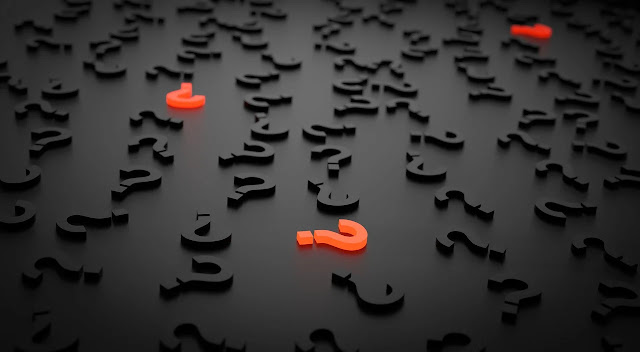Truth is not the monopoly of and cannot be monopolized by a particular individual, group, nation, race, etc. Truth has many facets and names as mentioned in the Glossary of God’s All Beautiful Names (1). Out of all these names, the four stand out: Justice, Freedom, Compassion, and Knowledge (2).
The ways that lead to truth are not the Truth itself. In the history of humankind, there were, there are, and there will be many ways that lead to truth. They can be represented on the diagram as the multitude of arrows that point to the same circle that contains Justice, Freedom, Compassion, and Knowledge. All people who follow these ways want the same things and aim for the same goals: Justice, Freedom, Compassion, and Knowledge. So, all religious and ethical systems, all ‘-ism’s, all ideologies have a common goal and same essence – they all want their followers to achieve Justice, Freedom, Compassion, and Knowledge. Whether they have the principles to achieve it is the question of another essay.
There might be many ways to reach the truth, and that is not the problem. The problem is that some people claimed in the past, claim in the present, and will claim in the future that they have the monopoly of the truth and that their way is the only truth and other ways do not lead to the truth. Those who claim the monopoly of the truth see themselves better than others. However, the Glorious Qur’an quotes two individuals who claimed ‘betterness’: “I am better than he,” “I am better than him,” “am I not better than this man” (3)
One of them is Iblis, and the second one is Pharaoh. From this, we can conclude that those who want to monopolize the truth have the same traits as Iblis and Pharaoh, and they travel the same way as Iblis and Pharaoh. The claims of the Iblis and Pharaoh are mentioned in 7:12, 38:76, and 43:52. Claims of betterness are not the way of betterment. The claim of betterness does not imply progress and process, while betterment is the process and progress. The Muslims deceived themselves for five hundred years with the claims of betterness, meanwhile abandoning the process of betterment. These five hundred years of self-defeat and self-deception left indelible marks on the mentality and mindset of Muslim people; their mentality and mindset mutated and regressed. Instead of the intake of the ‘new and fresh blood’ in the form of the new and fresh ideas and opinions, the last five hundred years are characterized by cognitive incest and intellectual inbreeding that gave birth to the mistakes of culture and errors of society such as ISIS and similar lowly mutants. This cognitive incest and intellectual inbreeding produced a closed mentality instead of an open mentality; they raised people with fixed mindsets instead of flexible mindsets (4).
Claims of betterness are not the way of betterment. Claims of betterness are the way of Iblis and Pharaoh. Therefore, Muslims are not better than Christians. Muslims are not better than Judaists. Muslims are not better than atheists. Muslims are not better than materialists. Muslims are not better than Hindus. Muslims are not better than Buddhists. Muslims are not better than any group of people in the world.
The criticisms of the Muslims are well-deserved and have a sound evidential base. Despite these criticisms, Muslims want to find respite in the claim of betterness and monopoly of the truth. They want to be like the ostrich in the Fourteenth Word (5). However, closing eyes to the sun does not extinguish the sun; closing eyes to the objective truths does not negate them. The monopoly of the truth is not the way that leads to happiness. Journey to the truth and into the truth is the way because this journey never ends. And the claim of the monopoly of the truth is the End.
O Freer of captives (6). Free and liberate my mind and mentality. Never let me claim the monopoly of truth, never let me claim the betterness. Always lead me on the journey of betterment. You are my refuge in misfortune, my hope in disaster, my friend in desolation, my companion in loneliness, my benefactor and beneficent friend, dispeller of my cares, my succourer in need, my stronghold in my plight, my helper in time of fear, and my guide in time of confusion (7)
(1), (3), (8), (9) Ünal, The Qur’an with Annotated Interpretation in Modern English.
(2) İman isteyen münafık, “Justice, Freedom, Compassion, Knowledge.”
(4) Dweck, Mindset: How You Can Fulfill Your Potential.
(5) Nursi, The Words: On the Nature and Purposes of Man, Life, and All Things.
(6), (7) Cevsen.de, “Jawshan | Arabic-English (7).”
References
Cevsen.de. “Jawshan | Arabic-English (7).” Accessed February 8, 2021.
http://www.cevsen.de/jawshan-arabic-english-7/.
———. “Jawshan | Arabic-English (11).” Accessed February 8, 2021.
http://www.cevsen.de/jawshan-arabic-english-11/.
Dweck, Carol S. Dweck. Mindset: How You Can Fulfill Your Potential, 2006.
İman isteyen münafık. “Justice, Freedom, Compassion, Knowledge,” January 29, 2021.
https://www.munferit.net/2021/01/justice-freedom-compassion-knowledge.html.
Nursi, Said Bediuzzaman. The Words: On the Nature and Purposes of Man, Life, and All Things.
Translated by Şükran Vahide. Vol. 1. Risale-i Nur Collection. Nuruosmaniye Cad.,
Sorkun Han 28/2, Cağaloğlu, Istanbul, Turkey. Tel: 0212 527 10 10 Fax: 0212 527 82 31:
Sözler Publications A. S., 2008. http://www.sozler.com.tr.
Ünal, Ali. The Qur’an with Annotated Interpretation in Modern English, n.d. www.mquran.org
www.theholybook.org.



